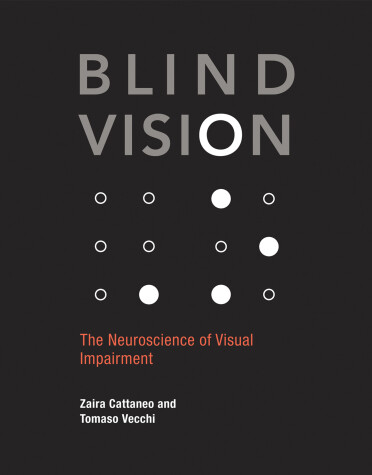An investigation of the effects of blindness and other types of visual deficit on cognitive abilities.Can a blind person see? The very idea seems paradoxical. And yet, if we conceive of "seeing" as the ability to generate internal mental representations that may contain visual details, the idea of blind vision becomes a concept subject to investigation. In this book, Zaira Cattaneo and Tomaso Vecchi examine the effects of blindness and other types of visual deficit on the development and functioning of the human cognitive system. Drawing on behavioral and neurophysiological data, Cattaneo and Vecchi analyze research on mental imagery, spatial cognition, and compensatory mechanisms at the sensorial, cognitive, and cortical levels in individuals with complete or profound visual impairment. They find that our brain does not need our eyes to "see."
Cattaneo and Vecchi address critical questions of broad importance: the relationship of visual perception to imagery and working memory and the extent to which mental imagery depends on normal vision; the functional and neural relationships between vision and the other senses; the specific aspects of the visual experience that are crucial to cognitive development or specific cognitive mechanisms; and the extraordinary plasticity of the brain—as illustrated by the way that, in the blind, the visual cortex may be reorganized to support other perceptual or cognitive funtions. In the absence of vision, the other senses work as functional substitutes and are often improved. With Blind Vision, Cattaneo and Vecchi take on the "tyranny of the visual," pointing to the importance of the other senses in cognition.
- ISBN10 026201503X
- ISBN13 9780262015035
- Publish Date 4 March 2011
- Publish Status Out of Print
- Publish Country US
- Publisher MIT Press
- Imprint The MIT Press
- Format Hardcover
- Pages 280
- Language English
- URL https://penguinrandomhouse.com/books/isbn/9780262015035
